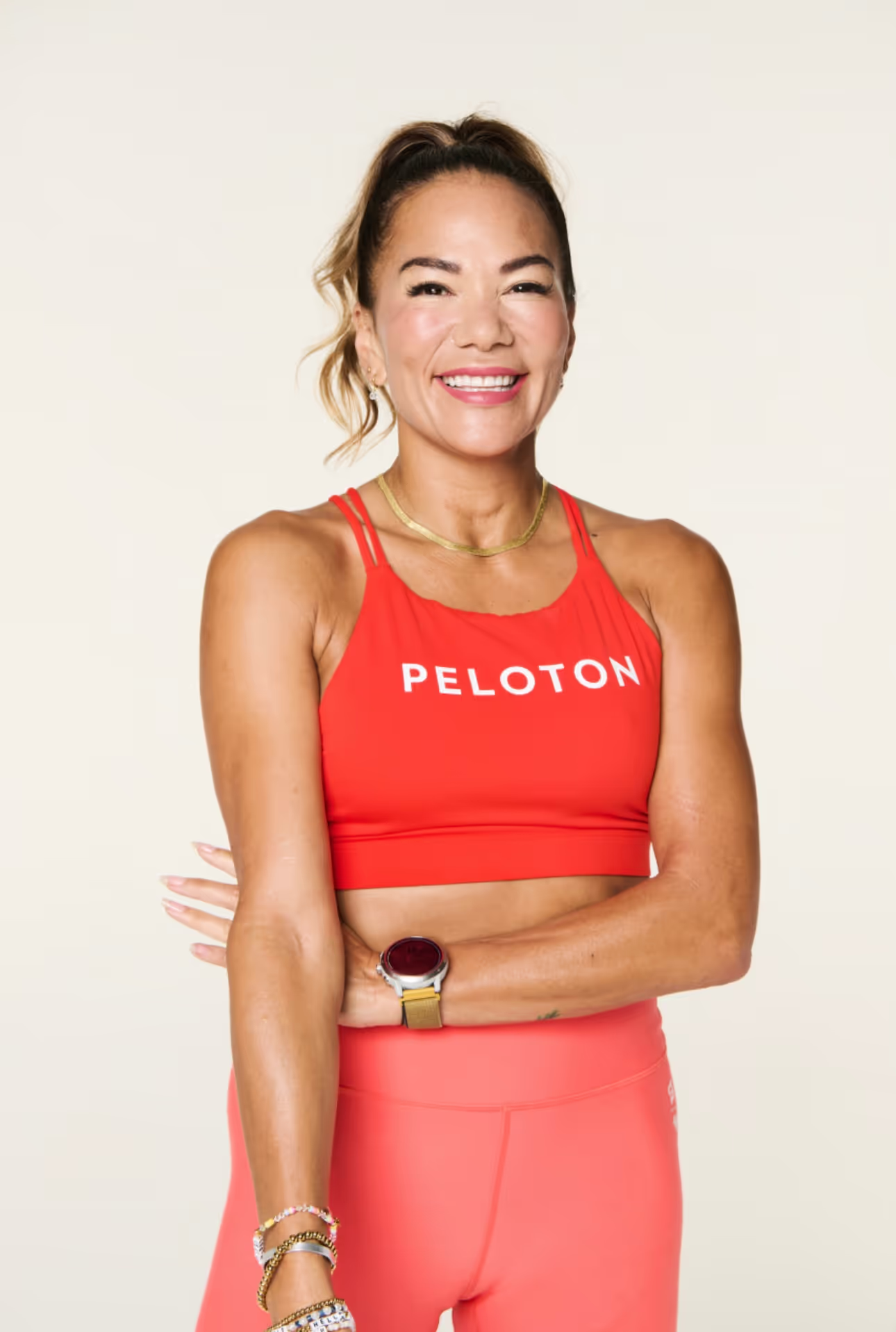You are statistically more likely to win an Olympic medal in Europe than build a tech unicorn.
In this interview series, we speak to athletes and founders about what it really takes to perform at the highest level in sport and tech.
These are stories of sacrifice, ambition, resilience and the determination to be the very best at what you do.
Susie Chan, endurance runner and Peleton instructor
Susie started running at the age of 35 and is now one of the most recognisable runners in the UK. She has finished all of the World Marathon Majors, has completed the Marathon des Sables (250km through the Sahara Desert) more times than any other British woman and has run Badwater 135 (200km through Desert Valley, California) which is often described as the hardest run in the world.

Q&A
How did you start running?
I was 35 when I first started running. My brother signed me up for a half marathon and I agreed to do it. I had no fitness experience, was a smoker and a drinker and a single Mum. Unsurprisingly, when I started running I was terrible at it. I tried to run around two football pitches and kept having to stop.
I did my first ever half marathon hungover and by mile eight I genuinely thought I was dying. But once I finished I spent weeks in the glow of that achievement and I’ve kept running ever since.
Once I get into something, I’m quite dedicated. About 15 months later I started looking at ultra-marathons. It didn’t occur to me that anyone could run that far. I did my first ultra-marathon on the Isle of Wight. I trained quite hard, learnt quickly and was dedicated and it was actually fine. It’s astonishing what your body can do.
I sit in the space where I’m an ordinary person who has learnt how to do extraordinary things
I did these difficult endurance races in my weekends and went back to work on Mondays. I’m not really exceptional - that’s not me. I sit in the space where I’m an ordinary person who has learnt how to do extraordinary things. You don’t need to be top of the tree to do very well, but I’ve managed to turn my passion into a career.
What motivates you to keep going?
Ultra-running is about three things. I’m average at one, good at one and not good at another.
You need to be consistent about the training to give you a certain level of fitness. You need to have your admin on point - food, nutrition and kit.
But most important is your mindset. I’ve lined up next to elite athletes who are incredibly fit who don’t finish because their heads haven’t been in the right place.
I am someone who is naturally, and continually, positive. But before running I had no confidence or self-belief. I used to watch the London Marathon, often hungover, and think ‘how are these people doing it?’
My mindset started to change after my first half-marathon. By the time I got to the Marathon des Sables in the Sahara Desert I looked at the start line and I knew exactly what was going to happen. I know I could do it. That shows how far your mindset can shift in two years.
There are better runners out there, and I’ve never won an ultra-marathon. But I’m still running them, and I’m still finishing.
What techniques have you learnt to maintain mental discipline and performance?
Positivity is important, but you need grit as well. Running these races is a battle in your mind. You need tenacity and stubbornness over vanity.
For me, I break things down into time. I know even the longest races are still just a few hours.
So I take myself out of the here and now and think about literally anything other than running. I think about the positive aspects of what I’m doing. I start composing the Instagram caption I’ll post about this race. Or think about what I’ll be doing at that time tomorrow - eating a big pizza with my finisher’s medal. I think about all of the rewards I will get from finishing in a really detailed, granular way.
If I’m running and I start to feel an injury, you get obsessed with it. I did a race last weekend and spent 16 miles trying to stop focusing on a pain in my knee. I have to work really hard to focus on the positives, even if that’s just ‘well it’s not getting any worse.’
It’s all about consistency in the beginning.
The other thing that really helps is community. Standing at the start line of a 100-miler, the only people who don’t ask why you’re running are the other people running. You don’t need to explain, this is just what we do. You’re all in it together and that makes a difference.
What’s the hardest thing you’ve ever done?
On paper, the hardest race I did was Badwater 135. I knew it was going to be difficult as I’m not great at elevation or night running. But mentally my head was in the game and I was laser-focused. I’ve never been in as much pain as the final ascent but at the same time I wanted to savour the experience.
The race I didn’t realize was going to be hard was the Jungle Ultra where you start in the Andes and run down to the Amazon. I was awful at it. I kept falling into rivers and everything got wet. It takes six days to complete and I hadn’t prepared properly. I remember falling over and really hoping I’d broken my arm so I could just stop. But you pick yourself up and keep on going.
How important is confidence to perform at the highest level?
Running is the only thing that has ever given me confidence. Everyone probably has confidence and the potential to do extraordinary things in them, but it takes a journey to believe it.
I spent my 20s working in museums and galleries and hated public speaking. I had to do a talk in front of an audience and I just froze, I couldn’t do it.
Looking back, no-one I worked with would believe that now I spend my time running Peleton classes, recording videos for Instagram and talking at events. Running gave me that confidence.
What advice would you give to a founder at the start of their journey?
Out of all of the things I’ve done which are difficult, the hardest was being consistent at the beginning.
It’s hard to measure progress when everything feels hard. The first few weeks, and the first few runs feel like you’re making no progress.
But keep doing it. Keep focused and you will get there. It’s all about consistency in the beginning.
And take moments to reflect because you will have made progress. Even if it doesn’t feel like it and you’re still in the weeds and working hard, you will be getting better and better and better.




%2520(1).avif)




%20(1)%20(1)%20(1)%20(1)%20(1)%20(1).avif)
.avif)

